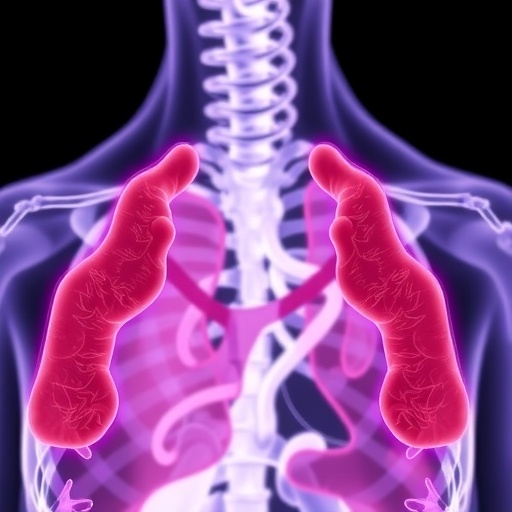In the realm of hematology, there lies a condition that poses significant challenges to both patients and healthcare providers alike—Paroxysmal Nocturnal Hemoglobinuria (PNH). This rare, acquired blood disorder results in the destruction of red blood cells, leading to a myriad of complications including severe fatigue, abdominal pain, and thrombotic events. A critical aspect of managing PNH has rested on the efficacy of therapeutic interventions aimed at limiting the deleterious effects of the disease. Recent research published in Advances in Therapy reveals promising insights into the long-term efficacy and safety of Pegcetacoplan, a drug that has shown to provide sustained benefits over a significant period in adult patients with PNH.
The study conducted by de Castro et al. examined the outcomes of patients who have been receiving Pegcetacoplan, an innovative therapeutic agent that acts by inhibiting the complement system, which is hyperactivated in PNH. The innovative mechanism of action of Pegcetacoplan differentiates it from previous treatments, offering a new layer of hope for individuals suffering from this debilitating disease. As participants extended their treatment duration up to three years, consistent safety and efficacy outcomes emerged, fostering optimism in the medical community regarding chronic management strategies for PNH.
Longitudinal studies such as this one are vital, as they explore the impact of prolonged drug administration on both the safety profile and the therapeutic benefits. In this study, the researchers meticulously tracked various parameters such as hemoglobin levels and incidences of thrombotic events, allowing for a multifaceted assessment of Pegcetacoplan’s effects over time. The sustained efficacy noted in the results provides a compelling argument for the use of Pegcetacoplan as a first-line treatment, potentially altering the landscape of PNH management and enhancing quality of life for affected individuals.
Additionally, adverse effect profiles are of paramount importance when considering long-term treatments. Patients with PNH are often already burdened with multiple complications, thus introducing a therapy with manageable or even minimal adverse effects is critical. The findings from this study indicated that Pegcetacoplan not only maintained therapeutic efficacy, but was well tolerated among long-term users. Such insights are invaluable as they reinforce the viability of Pegcetacoplan as a cornerstone in the management of PNH.
The innovative approach taken in this research extends beyond merely presenting statistics; it delves into the personal experiences of the patients involved in the study. Insights into their day-to-day lives, challenges faced with their condition, and the impactful role of Pegcetacoplan in restoring not only their physical health but also their emotional and psychological well-being illuminate the study’s broader significance. Living with a chronic condition often takes a toll that transcends physical symptoms, making the psychosocial benefits of effective treatment equally important to acknowledge.
Moreover, the study is a timely contribution to the ongoing discourse around autoimmune and hemolytic disorders. There is a clear necessity for continued research to assess long-term outcomes, particularly in niche areas such as PNH, where patient populations are smaller and research funding is often limited. The dedication of the research team, as demonstrated through the rigorous duration and depth of this study, serves as a beacon for further exploration into both the biological mechanisms at play and the overall patient experience in combating PNH.
The implications of these findings reach beyond clinical efficacy; they invite questions about accessibility and the necessity of ongoing patient education regarding available therapies. As awareness surrounding PNH continues to expand, so too must the dialogues around treatment options. Healthcare providers must remain vigilant in not only recognizing the symptoms of PNH in patients but also in advocating for innovative therapies like Pegcetacoplan to ensure optimal outcomes.
Moreover, the sustained advancements in treatment underscore a larger trend within the field of hematology. An increase in understanding of the immune system and its complex interactions with various pathologies has informed the development of next-generation therapies. Pegcetacoplan, which is itself an example of targeted therapy designed to combat the unique challenges of complement-mediated disorders, embodies this shift toward precision medicine, promising tailored strategies that focus on the underlying causes rather than merely addressing symptoms.
As media attention heightens around such transformative treatments, the stories of individuals living with PNH and their journeys toward improved health through Pegcetacoplan become powerful narratives that can drive awareness and advocacy. Each success story reverberates throughout the community, reinforcing the belief in the feasibility of a better quality of life through informed and adapted therapeutic interventions.
In conclusion, the findings of this study herald an era of optimism for individuals grappling with PNH. As Pegcetacoplan continues to demonstrate its long-term efficacy and safety within this patient population, it inspires hope not only for improved individual health outcomes but also for the future of treatment paradigms in rare hematological conditions. With dedicated research and patient-centered approaches informing care strategies, the battle against PNH can advance toward a brighter horizon, ultimately benefiting those who bravely navigate the complexities of this condition.
In summary, understanding the path toward optimal management of PNH through the lens of Pegcetacoplan underscores the essence of ongoing research and patient engagement, fortifying the foundation upon which future innovations in treatment will evolve and expand.
Subject of Research: Efficacy and Safety of Pegcetacoplan in Adults with Paroxysmal Nocturnal Hemoglobinuria
Article Title: Efficacy and Safety Maintained up to 3 Years in Adults with Paroxysmal Nocturnal Hemoglobinuria Receiving Pegcetacoplan
Article References: de Castro, C., Kelly, R.J., Griffin, M. et al. Efficacy and Safety Maintained up to 3 Years in Adults with Paroxysmal Nocturnal Hemoglobinuria Receiving Pegcetacoplan. Adv Ther 42, 4641–4658 (2025). https://doi.org/10.1007/s12325-025-03310-8
Image Credits: AI Generated
DOI: https://doi.org/10.1007/s12325-025-03310-8
Keywords: Paroxysmal Nocturnal Hemoglobinuria, Pegcetacoplan, hematology, long-term efficacy, autoimmune disorders, chronic treatment, patient experiences, precision medicine




